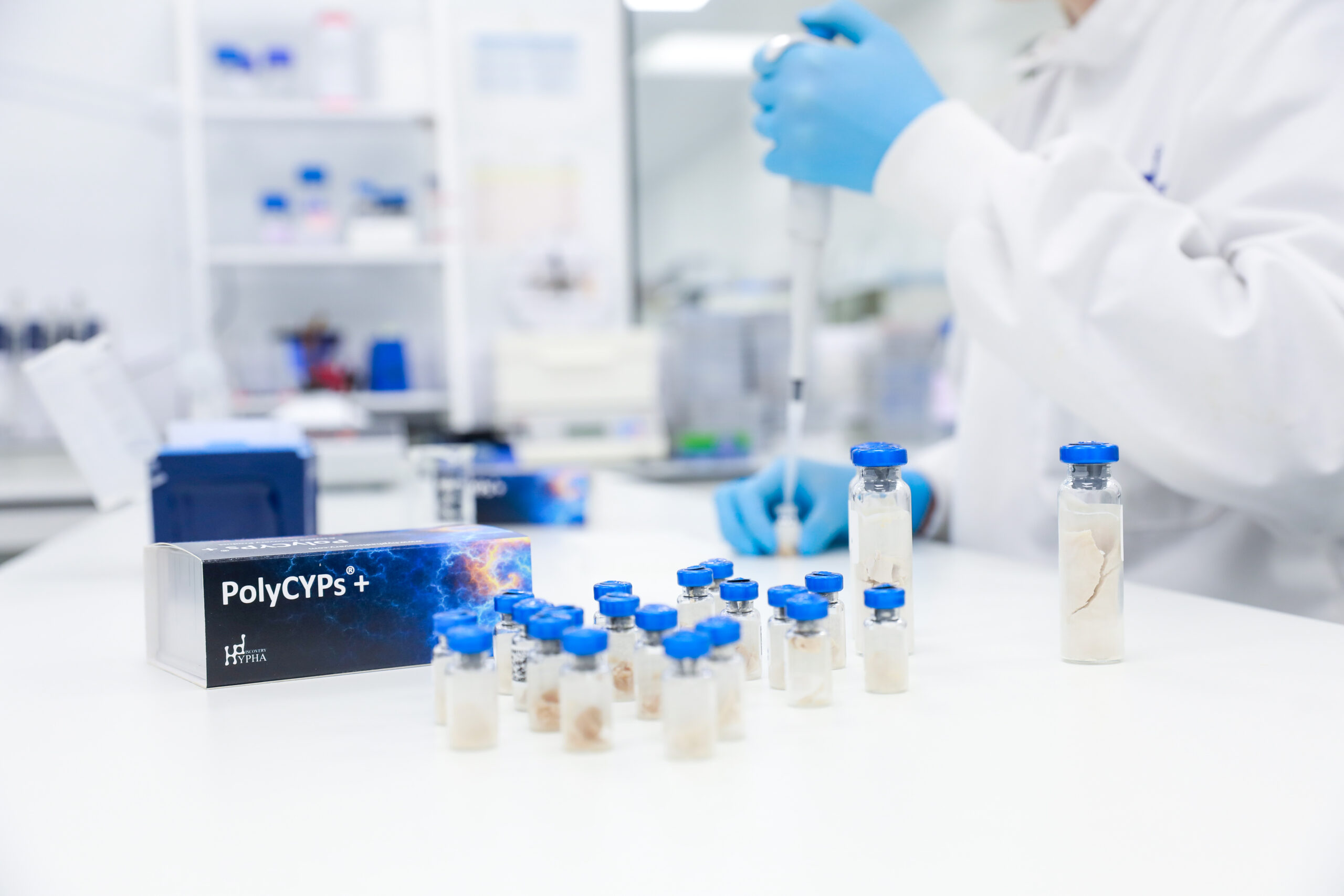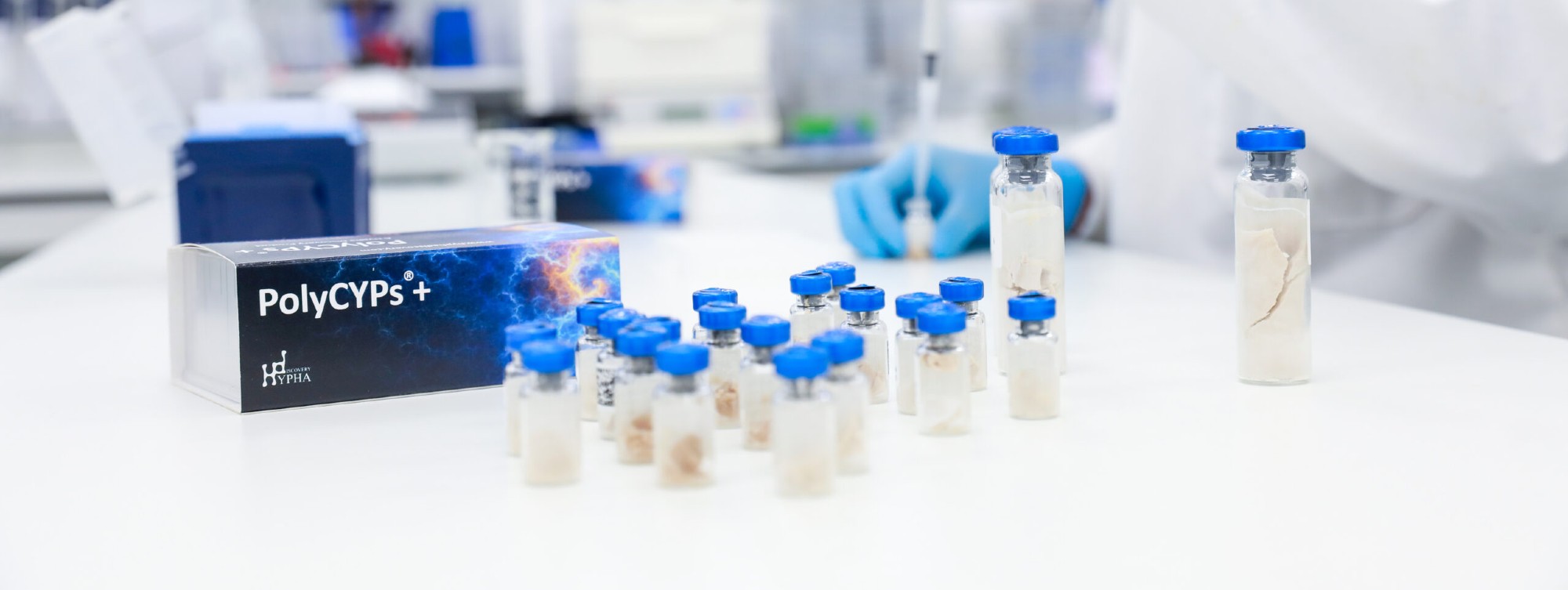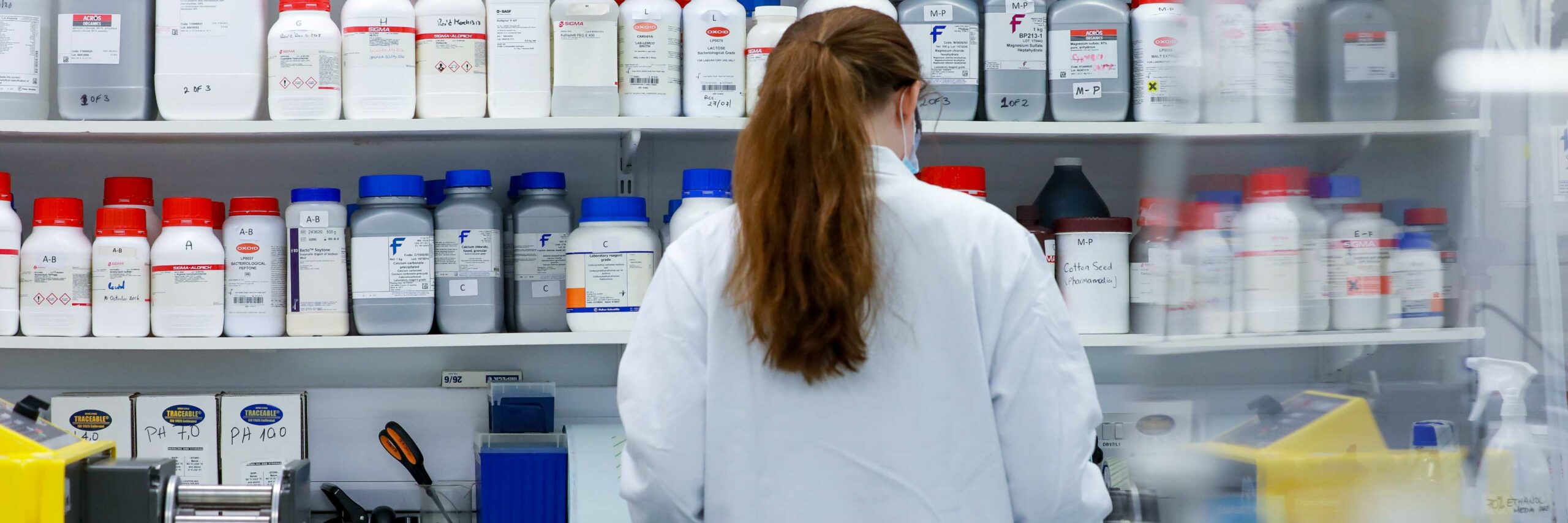Rapid scale-up and purification of a hydroxylated metabolite
Screening against Hypha’s microbes and PolyCYPs enzymes
In this case study at least 2 mg of a hydroxylated metabolite (M4), originally observed in rat liver microsomes, was required by a US pharma company. Screening of the parent compound against 22 PolyCYPs enzymes and 23 microbes revealed the production of two main monohydroxylated products, one of which was M4. M4 was best produced by PolyCYPs 152 and 359, as well as by bacterial species 45. The other monohydroxylated metabolite was produced by a different PolyCYPs isoform, (PolyCYP 350) and bacterial species 1.
PolyCYPs scale-up
Scale-up of PolyCYP 152 was selected as the quickest route for producing mg quantities of the hydroxylated metabolite M4, prior to which a follow-up dose escalation study performed in 96-well plates showed that the substrate loading could be increased from 100 mg/L to 300 mg/L to provide higher volumetric yield of M4.
The scale-up reaction provided a higher conversion than the 11% conversion seen at the screening stage, increasing to 35% total conversion. A total of 20.1 mg M4 was purified from the scale-up material using two rounds of HPLC purification. The metabolite was determined to be >97% pure by LC-UV-ELSD, and this was confirmed by 1H NMR. Lyophilised M4 was supplied to the client together with a Certificate of Analysis within 22 days from receipt of order, exemplifying the short timelines achievable using PolyCYPs to access CYP-derived metabolites.

Rapid route to definitive MetID
Pure metabolite returned to the client in 3 weeks.
Certificates of Analysis
Pure material supplied to client specifications along with a certificate of analysis.
PolyCYPs are an integral part of Hypha’s newly launched One-Stop Metabolite Shop, which enables clients to access even the most difficult-to-synthesise metabolites using a variety of biological and/or chemical techniques. Hypha are also able to purify metabolites from biological matrices such as urine, and elucidate structures using cryoprobe NMR spectroscopy.
Related Resources
Access a brochure on Hypha’s PolyCYPs+ kits. The kits contain 20 enzymes effective for producing a wide range of phase 1 metabolites. As well as 18 PolyCYPs enzymes, the kit also contains human aldehyde oxidase (AOX1) and the main human hepatic flavin-containing monooxygenase (FMO3), with other human FMO isoforms also available from Hypha.
Once a target metabolite or oxidised derivative has been synthesised by one or more PolyCYPs enzymes in the screening kit, a scale-up reaction with the best performing isoform is performed in order to access mg amounts of material for MetID and biological testing. The quickest and most cost-effective route for generating low mg amount of product is through the use of scale-up vials. Higher amounts of product can be generated using either a recombinant E.coli cell paste or through fermentation of a recombinant streptomyces clone expressing the isoform responsible for the biotransformation.
Hypha’s PolyCYPs kits are in routine use by pharma and agchem companies for producing human and other mammalian metabolites. One application involves use of PolyCYPs for creating radiolabelled metabolites for direct comparison with the radio profiles from mass balance and distribution study samples, necessary for regulatory filing. PolyCYPs provides a clean route for scalable access to more of the CYP-derived metabolites observed in these matrices, for definitive MetID and any tox studies deemed necessary. This is especially useful where low concentrations or unstable metabolites in the mass balance sample make structural identification difficult.


